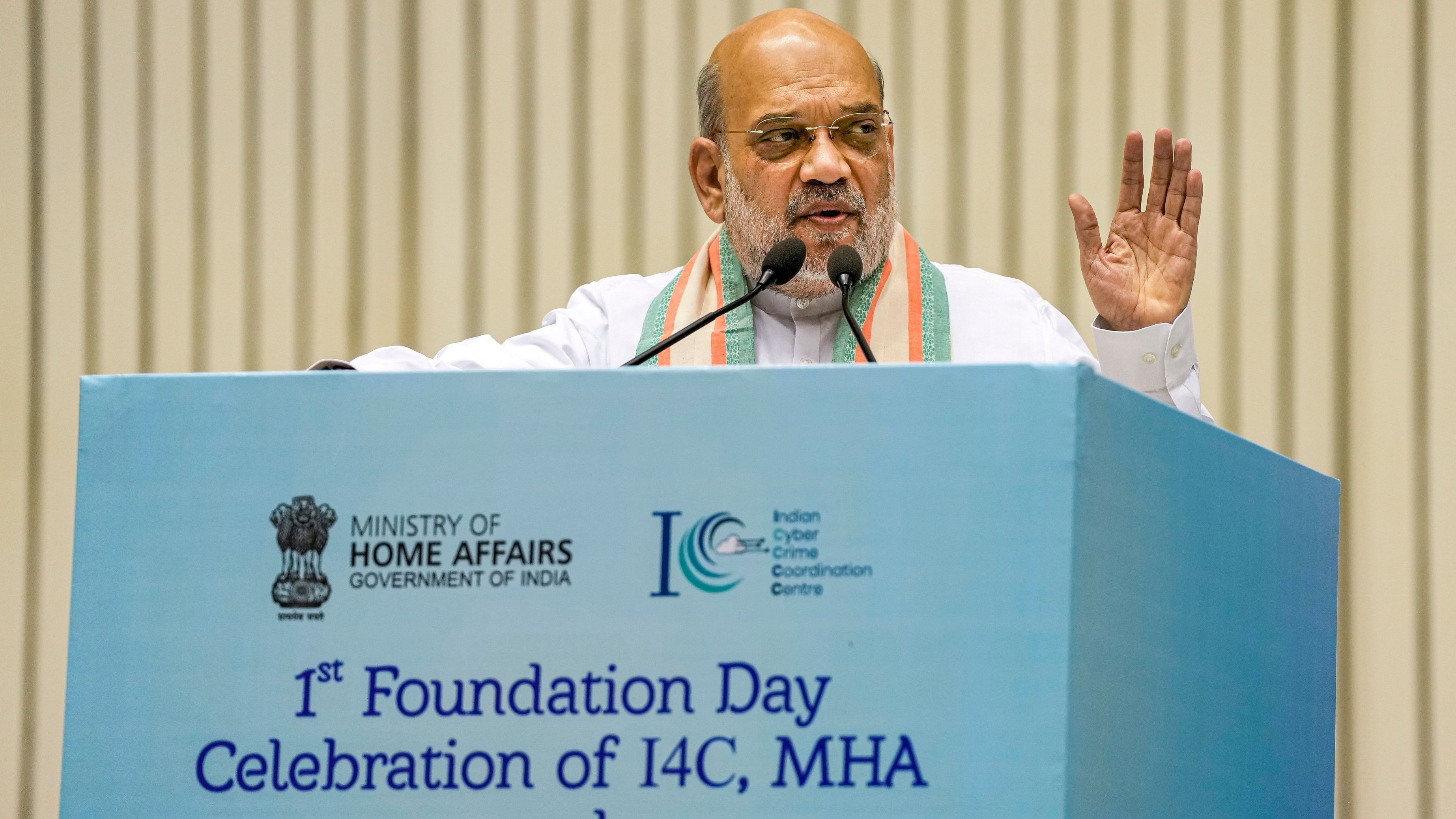
Union Home Minister Amit Shah speaks during the 1st foundation day celebration of 'Indian Cyber Crime Coordination Centre' (I4C), in New Delhi on Tuesday.
Credit: PTI Photo
New Delhi: In its efforts to tackle cyber crime that knows no boundaries, government on Tuesday unveiled the setting up of ‘Suspect Registry’ of cyber criminals, a centre for seamless cooperation to tackle online financial crimes, that will act as a depository of cyber crime data and a platform for training of 5,000 cyber commandos over next five years.
Launching the four programmes at the foundation day celebrations of the I4C or Indian Cyber Crime Coordination Centre here, Union Home Minister Amit Shah said cyber security is integral to national security as it is not just limited to the digital world and a country's progress is not possible without securing its digital assets.
He said 46 per cent of the world's digital transactions take place in India and all stakeholders should come together to fight cyber crime as it has no boundaries. He emphasised the need for using Artificial Intelligence (AI) to identify the modus operandi of criminals duping people of their money, spreading fake news and abusing women and children online.
Shah said several states have suspect registries in silos but it is not available at the national level, hindering effective action against cyber criminals who have no boundaries. He said a common platform is needed and that is why a Suspect Registry at the national level is being set up.
As part of this initiative, an official statement has said, a Suspect Registry of various identifiers is being created based on the National Cybercrime Reporting Portal (NCRP), in collaboration with banks and financial intermediaries for strengthening fraud risk management capabilities of the financial ecosystem.
Shah also announced the plans to train 5,000 'cyber commandos' in the next five years to tackle cyber crime in an effective manner.
Under the programme, a special wing of trained 'cyber commandos' will be set up in all states and union territories to counter threats of cyber security landscape in the country. The trained 'cyber commandos' will assist states, union territories and central agencies in securing the digital space, the statement said.
While the old dictum on information sharing was based on the "need to know" aspect, Shah said it has changed to "duty to share" and it is where the 'Samanvaya Platform' or the Joint Cybercrime Investigation Facilitation System comes into play. He said there will be a data-driven approach and this new platform would help.
A web-based module, the 'Samanvaya Platform' will act as "One Stop Portal for data repository" of cybercrime, data sharing, crime mapping, data analytics, cooperation and coordination platform for law enforcement agencies across the country.
Shah also said the Cyber Fraud Mitigation Centre (CFMC) has been established at 14C in New Delhi with representatives of major banks, financial Intermediaries, payment aggregators, telecom service providers, IT intermediaries and law enforcement agencies in states and union territories.
They will work together for immediate action and seamless cooperation to tackle online financial crimes, Shah said. The CFMC will serve as an example of "Cooperative Federalism" in law enforcement, the official statement added.
The I4C, established in 2018 under the Ministry of Home Affairs (MHA), aims at establishing a national-level coordination centre for addressing all issues related to cybercrimes in the country and enhancing the capabilities of law-enforcement agencies and improving coordination among various stakeholders dealing with cybercrime.
